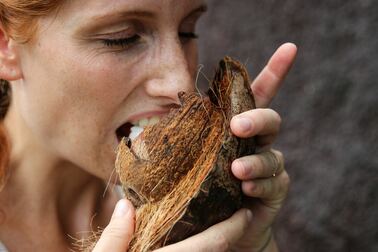 Photo courtesy of Lukas Beer on Unsplash
Photo courtesy of Lukas Beer on Unsplash So often we eat unconsciously. Oh, we might notice that food is sweet or salty but what else do we notice? The temperature? The texture? There is an even greater depth of taste to every individual food we eat which, with some awareness, we can discover and use for our individual benefit.
According to Ayurveda, six tastes are ascribed to foods. These are: sweet, sour, salty, bitter, astringent, pungent. All six tastes are needed to balance a meal and all tastes together serve to balance your individual constitution or in Sanskrit, your prakriti. How much of each taste to eat will depend on our particular constitution, which is a unique combination of Vata, Pitta and/or Kapha; also the season needs to be taken into account. Ideally we want to have all six tastes at each meal. If that's not possible, be aware of having each of the six tastes at least once during any day.
- The tastes that balance the air and space of Vata are sweet, sour, salty (warming and grounding)
- The tastes that balance the fire of Pitta are sweet, bitter, astringent (cooling and anti-inflammatory)
- The tastes that balance the earth and water of Kapha are pungent, bitter, astringent (stimulating and drying)
If we eat according to our constitution and adjust our eating for the seasons, we will find our body and mind coming back into balance and we'll attain a better sense of well being. Let's explore the six tastes and their curative effects, i.e. how they can help balance our doshas (our energetic constitution) and effect the well being of our body and mind.
 Photo by Joseph Gonzalez, Unsplash
Photo by Joseph Gonzalez, Unsplash The sweet taste is found in most grains and sweet fruits (fresh or dried), winter squash, many root vegetables, natural sweeteners. The elements of water and earth make up the sweet taste. These elements are heavy, thus the sweet taste provides density and weight to the body. The sweet taste is conducive to a sweet personality, and gives us a sense of satisfaction and fulfilment. Too much of the sweet taste in our diet leads to laziness. And if the sweet taste is lacking in our diet we can feel unsatisfied, discontented or depressed.
The sweet taste will pacify the intense nature of Pitta, and ground Vata. But it will increase the heaviness of a Kapha constitution. Too much sweet taste will also cause weight gain for any one.
 Photo by Joel Guerrero, Unsplash
Photo by Joel Guerrero, Unsplash The sour taste consists of earth and fire and is found in lemon, lime, green grapes, vinegars, fermented foods, wine, cheese, yogurt, sour cream, hibiscus, rose hips, tamarind, green mango, tomato. It stimulates the appetite and saliva, enhances digestion and elimination, and increases thirst. It is considered hot and oily, so can increase heat in the body and liver.
The sour taste aggravates Pitta and Kapha, but balances and grounds Vata.
The sour taste increases discernment, heightens our awareness and sharpens the mind. Too much can make us judgemental and critical, and too little can make us scattered, impulsive and careless.
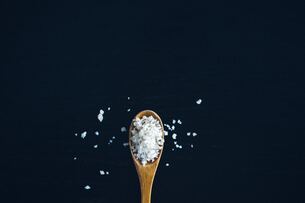 Photo by Jason Tuinstra, Unsplash
Photo by Jason Tuinstra, Unsplash Salt is a special combination of fire and water. It increases heat in the body and can also contribute to water weight gain if taken in excess because it is considered moist (attracts moisture). The salt taste is found in salt, of course, but also in seaweed, celery, and ocean fish and it bears qualities that are heavy, oily and heating.The salt taste in moderation enhances the flavour of food. It stimulates digestion, helps our electrolyte balance, increases the absorption of minerals and cleanses our tissues.
The salt taste is great for Vata because it counteracts the cold, light nature of Vata. Too much salt can cause water retention, especially for Kapha constitution folks. And too much salt can aggravate Pitta conditions such as hypertension or ulcers. The exception is whole mineral salt, such as pink Himalayan salt, which is a rock salt and is less heating than sea salt. It can be used in moderation by Pitta types..
The salt taste can combat dullness, depression and gives us a passion and zest for life. Those who decide to avoid the salt taste completely in their diet could discover procrastination and feel unmotivated. Too much salt taste can make us hedonistic and can adversely effect the blood and skin.
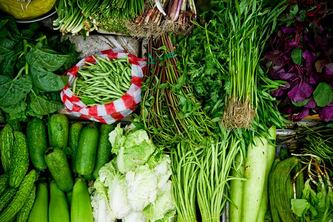 Photo by Lou Liebau, Unsplash
Photo by Lou Liebau, Unsplash The bitter taste is the lightest and coldest of the six tastes. It is made up of air and space. It is anti-inflammatory and detoxifying and so can remove waste and toxins easily from the body. Bitter foods can also purify the mind from toxic thoughts and negativity. The bitter taste is best for Pitta because it cools the heat, and for Kapha because it provides lightness; but it is less beneficial for Vata because of its cold, light nature.
The bitter taste is found in dark green vegetables. It is also found in turmeric, coffee, and black or green tea, eggplant and dark cocoa. It imparts dynamism, cool-headedness and focus. Too much bitter taste in our diet, such as too much coffee or tea, can make us feel pessimistic, depressed and bitter. If we avoid the bitter taste in our diet, we could feel perpetually disappointed or sad.
| Astringent Taste The air and earth nature of the astringent taste is cooling, drying and firming. As such its cooling quality is good for Pitta, and its drying and firming quality good for Kapha. Vata, however, can be aggravated by its drying nature if eaten in excess, and it can cause gas. Legumes, beans and lentils embody the astringent taste. Also unripe bananas, green grapes, pomegranates, cranberries, cauliflower, okra, sprouts, most raw vegetables, and black tea are all astringent foods. Astringent foods enhance mental clarity and introspection. If we lack the astringent taste in our diet, we will experience brain fog, and listlessness of mind and body. Too much astringent food in our diet can lead to anxiety and a fearful or overly sensitive nature. |
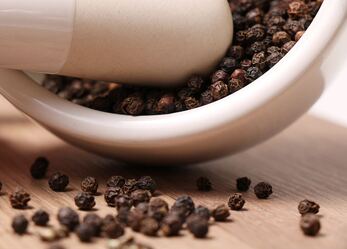 Photo by Sonja Punz, Unsplash
Photo by Sonja Punz, Unsplash Fire and air make up the pungent taste. Reach for warming and hot spices and herbs such as hot peppers, cayenne, ginger, mustards, onions, garlic, cloves, pepper, radishes, oregano, basil, arugula, thyme, rosemary. Pungent foods are extremely drying. They are great for wet nature of Kapha, and warming in small quantities for the cold nature of Vata. Pitta wants to avoid most pungent foods but there are some specific pungent spices and herbs that can be used to advantage in small quantities.
The pungent taste warms the body, enhances digestion, gives us drive and ambition. It stimulates the circulation, breaks up clots, reduces fat, eliminates congestion. The pungent taste gives us drive and ambition. With too little, we become passive. With too much we can become sharp and critical, even aggressive.
If you'd like to achieve a much deeper relationship with food and its effect on you personally, engage in my 21-Day Ayurvedic Seasonal Eating and Lifestyle Program for Pitta/Summer Season. You'll get recipe books for breakfast, lunch and supper, plus beverages and desserts; a seasonal food list to create your own recipes; and tons of Ayurvedic eating and lifestyle tips to help you stay calm, cool and balanced over the summer. You'll be amazed at how profound and balancing it can be to eat and live in tune with the natural laws of the season.
Click here to sign up for my newsletter announcements. You'll also receive my current Ayurvedic lifestyle freebie.
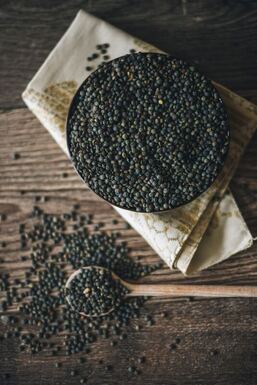

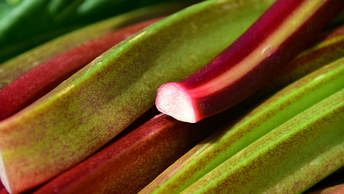
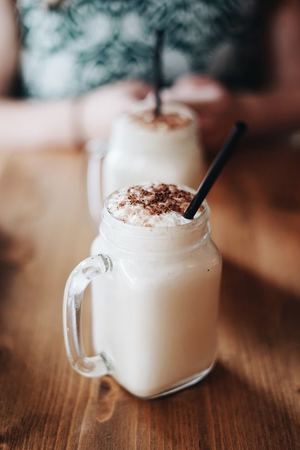



 RSS Feed
RSS Feed